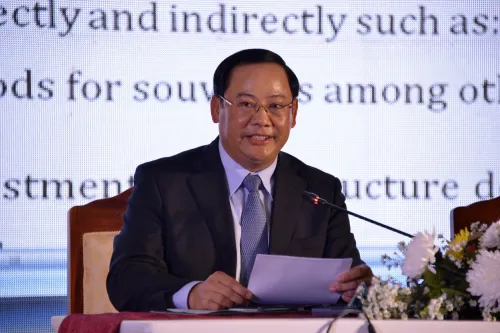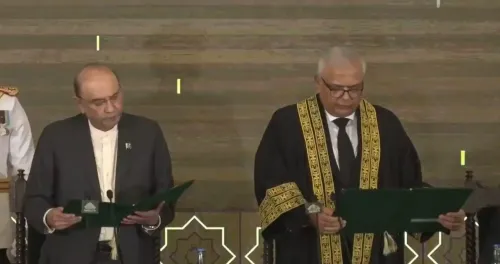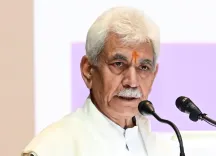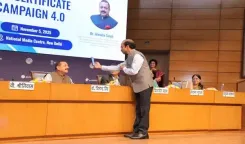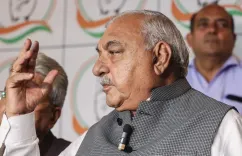Is It the Right Moment for India to Pursue Strategic Realignment?

Synopsis
Key Takeaways
- Trump's speech highlights the shifting dynamics in global politics.
- Strained US-India relations due to recent tariffs and foreign policy unpredictability.
- India's strategic hedging remains crucial for navigating evolving power structures.
- Potential for realignment amidst changing geopolitical landscapes.
- Future of diplomacy may transition towards transaction-based models.
London: The recent address by US President Donald Trump at the United Nations was a significant event in global politics.
During his speech, he criticized the UN for its ineffectiveness in addressing global issues and claimed that European nations are 'heading towards disaster' due to their policies on green energy and immigration. Trump's comments were candid and left little room for ambiguity.
Historically, the UN General Assembly has not been a venue for leaders to reprimand their global counterparts or to attack predecessors regarding domestic policies. However, given Trump's first eight months in office, it was not unexpected for him to adopt this approach.
Analysts noted that the hour-long address resembled a campaign speech more than a foreign policy statement. Trump boasted about his administration's efforts to combat immigration, referred to the US as 'the hottest country anywhere in the world', and highlighted his economic achievements. This rhetoric mirrored J D Vance's remarks at the Munich Security Conference earlier this year, where he criticized European leaders for the 'decline of Europe'.
It is evident that the Trump administration has significantly influenced the reshaping of global politics, particularly through the tariffs imposed on various allies and partners. This shift has also strained the traditionally strong India-US bilateral relationship, as Washington's unpredictable foreign policy decisions have led to complications. India has historically been a crucial ally for the US, especially in countering the growing influence of China in the Indo-Pacific.
However, Trump's recent tariffs on India due to its continued purchase of Russian oil have jeopardized decades of friendship and goodwill.
In his UN address, both India and China were labeled as 'primary funders' of the Russia-Ukraine war, although Trump also placed blame on NATO countries for 'funding the war against themselves'. More than ever, the nature of Trump's international relations raises questions about the future of traditional diplomacy and whether it is undergoing a fundamental transformation.
Trump's foreign policy largely reflects his business mindset, showcasing a transactional approach to diplomacy that resembles a page out of his 'art of the deal'. His skepticism towards multilateral institutions like the UN is indicative of his worldview. The only instance where he praised NATO during his speech concerned members committing to increased defense spending, another effort to create a 'fairer' international order for the US.
The erosion of US hegemony is contributing to a fragmented world with numerous emerging power centers. India now, along with many others, has compelling reasons to adhere to its policy of strategic hedging. Prime Minister Modi's participation in the Shanghai Cooperation Organisation (SCO) summit at the end of August showcased India's desire for autonomy.
While the RIC (Russia-India-China trilateral) is more of an interest-driven alignment rather than a direct alternative to the US-led Western order, it presents a timely opportunity for India to pursue strategic realignment.
Ultimately, India shares more commonalities with the US than it does with the Trump administration. Although the recent strains may be challenging to navigate, the future is rife with potential yet fraught with risks.
If there's one predictable aspect of Donald Trump, it's his unpredictability.
The new era of diplomacy he is fostering appears to be transaction-based, heavily reliant on narratives and posturing. Careful navigation amidst this reordering, while maintaining interest-driven alliances without isolating partners, is likely the strategy that could ensure survival in a landscape marked by poly-crisis.
(Saniya Kulkarni is a program manager at LSE IDEAS, The London School of Economics and Political Science. The views expressed are her own)

